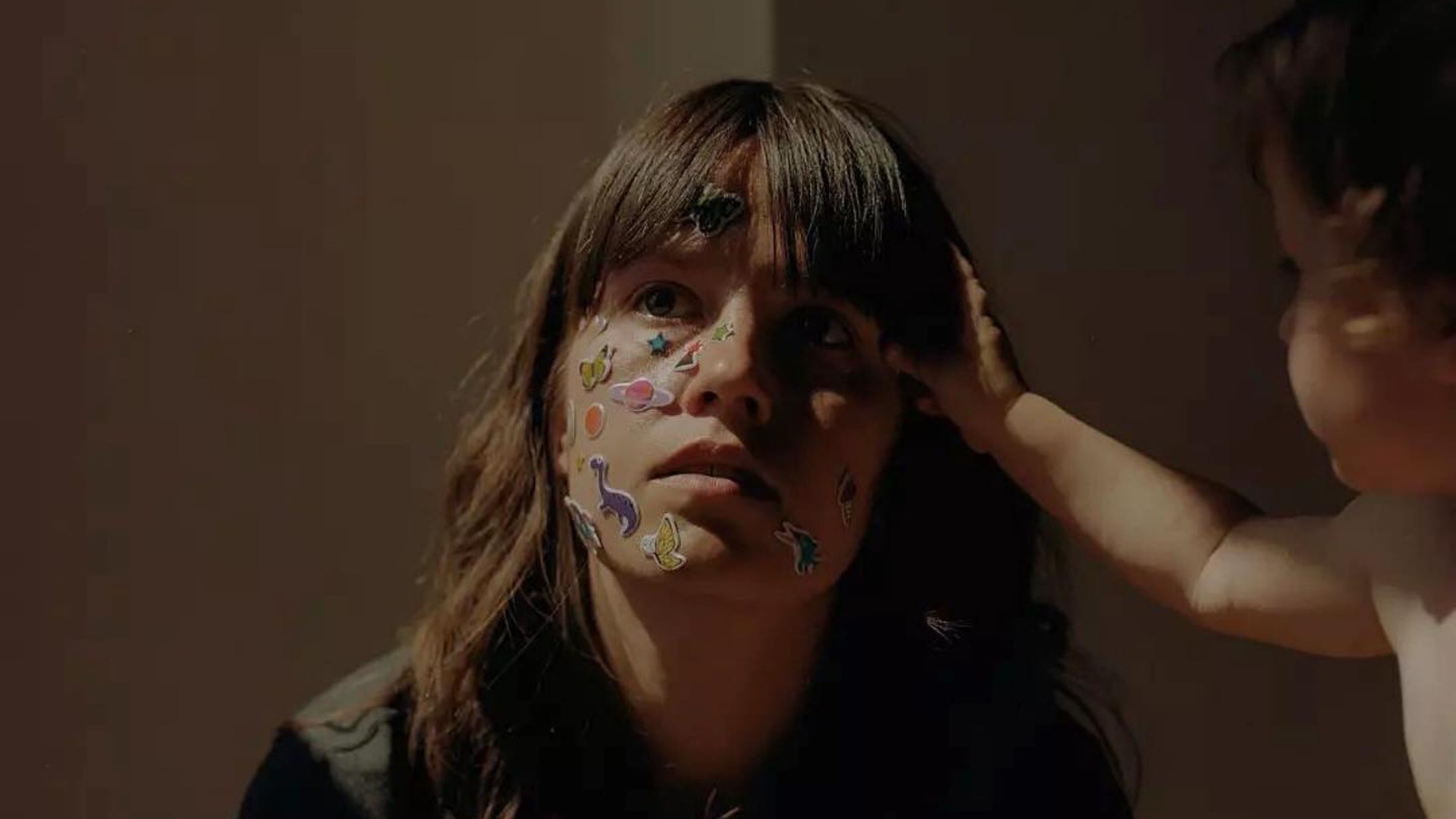
MPB Meets: Family Photography Curator Karni Arieli
Published March 14, 2025 by MPB
BAFTA-nominated filmmaker and photographer Karni Arieli is the founder of the Eye Mama Project, a global collective that aims to highlight photographers who identify as mamas. So far, photographers from 50 countries around the world have contributed 50,000 images that illustrate the wide range of experiences of motherhood. The Eye Mama Project is now publishing a book, Eye Mama: Poetic Truths of Home and Motherhood, which brings some of these images together to showcase the different narratives surrounding the light and dark sides of parenthood.

Karni Arieli
MPB: Can you tell us about the Eye Mama Project?
KA: The Eye Mama Project is about the photographer mamas looking introspectively into home family and self—care through a photographic artistic eye. The Eye Mama Project was my brainchild during the pandemic. Like everyone else, we were confined to the four walls of home. I was photographing my own children and home life, and I noticed many other photographer artists and women—who I was following on social networks—were doing the same.
I thought, why hasn’t there ever been a serious photographic study looking into the home? Why not collect this incredible portfolio looking introspectively at motherhood, self and family by women and non-binary mamas? The rest is history.
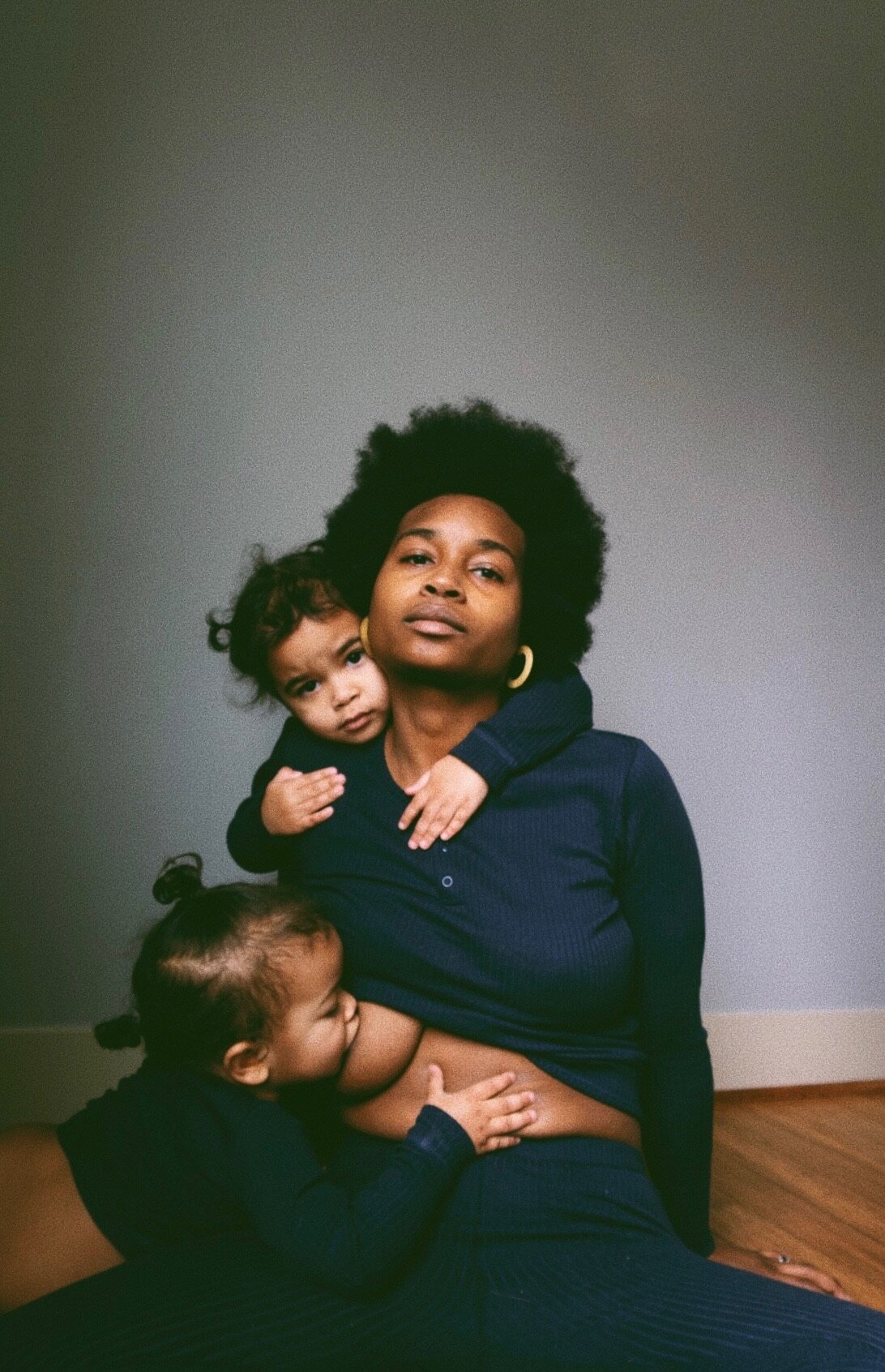
Bri McDaniel
MPB: What are your goals with the project?
KA: When I started the project, I didn’t really have a specific goal. I just saw this amazing imagery and started collecting it. It was calling out to me and somebody had to do it! While I was curating, it was as if the project itself was showing me in which direction we were meant to go. First, it was women’s view into their homes in a pandemic, then the mama narrative worldwide—women looking at themselves, their homes and families, to try and empower their personal narrative.
The goal is really to give visibility to the mama gaze, to give visibility to stories of care, empathy, home and parenting, by women and non-binary mamas worldwide. After all, you can’t empower the invisible—airing stories is what we do through the medium of photography.
MPB: What do you mean by 'the mama gaze'?
KA: The mama gaze is a collection of visual stories by photographers who identify as mama, looking at the self, home and family. It’s a very personal take. These are personal truths of home and care, light and dark, and the fantasy of the everyday. It’s looking closely at home, children and mothering—and what that means to us, as mothers and as humans.
I like to say that the Eye Mama Project isn’t just about motherhood. It’s about humanity. We’re looking at the concept of care. Like poets, we’re visually and emotionally dissecting ‘care’—what matters, what needs to be elevated and what we need to shine a light on. It has many different narratives, but each one is personal and powerful.
We’re exploring narratives like IVF, miscarriage, abortion, fostering, adoption and step-kids. All these narratives are crucial and important. We’re showing the unseen, the overlooked and the underrepresented, to empower and to share.
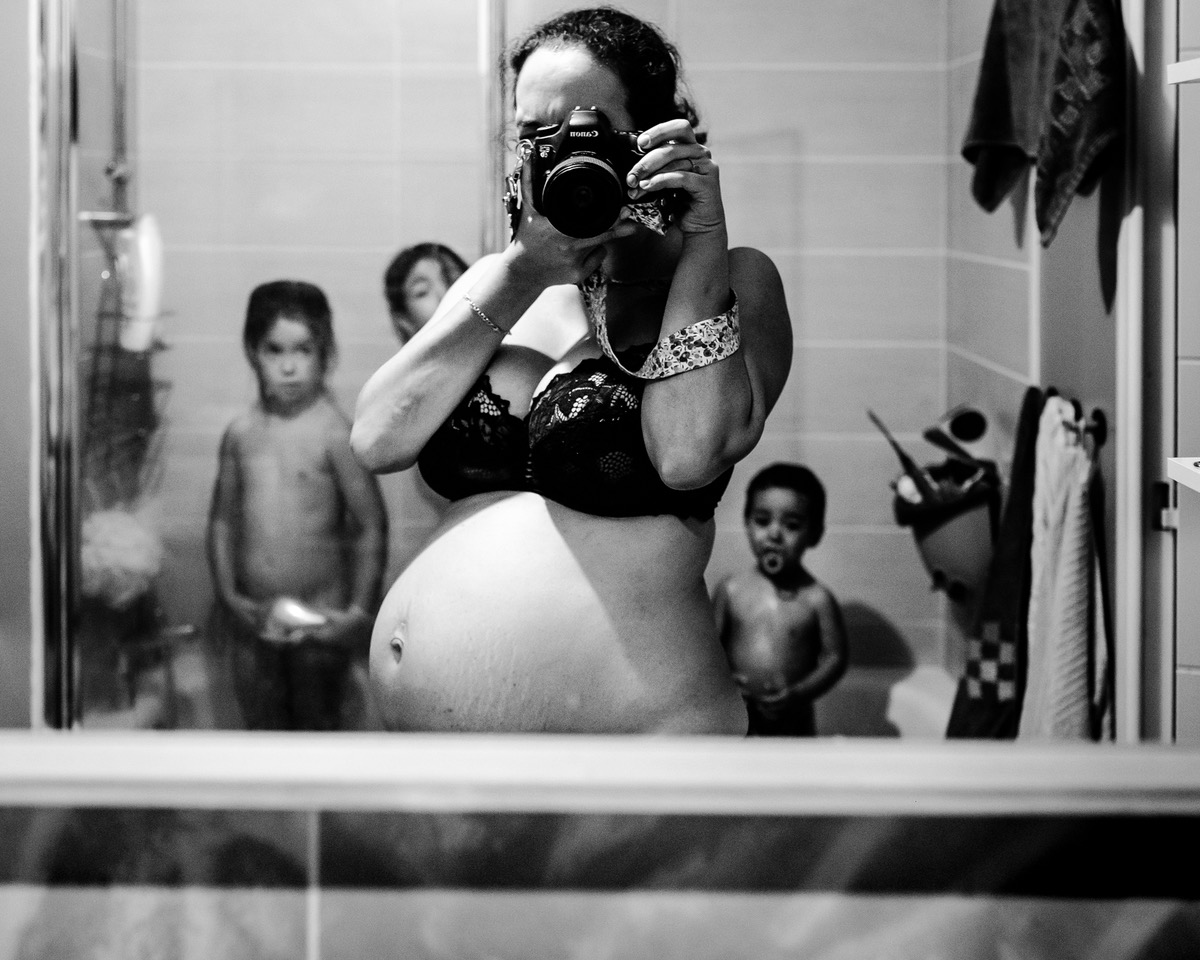
Rocio Marin Perez | Canon EOS 6D | Sigma 35mm f/1.4 DG HSM ART | f/2.2 | 1/250 | ISO 1600
MPB: Why do you think it is important to showcase motherhood in this way?
KA: Any group of unseen or overlooked storytellers need to share their narrative and need to be highlighted. Motherhood is just one of these narratives. It’s just part of a bigger concept of humanity. By showing all these different mother and mama stories, we are making people see and maybe care. By looking closely and engaging with the concept, we might be inclined to have more empathy—and then empower women, carers, parents and fathers.
Women and carers need to be empowered. They shouldn’t have to struggle for equal pay, paid leave, abortion rights and childcare. It’s really important—especially if we want to be a just, equal and fair society. We can do that by highlighting and giving visibility to these topics.
It’s a narrative never shared before by women, trans and non-binary mamas. It’s the unseen, being seen for the first time, as an important portfolio. We need to think about what we need to change and how to make things better.
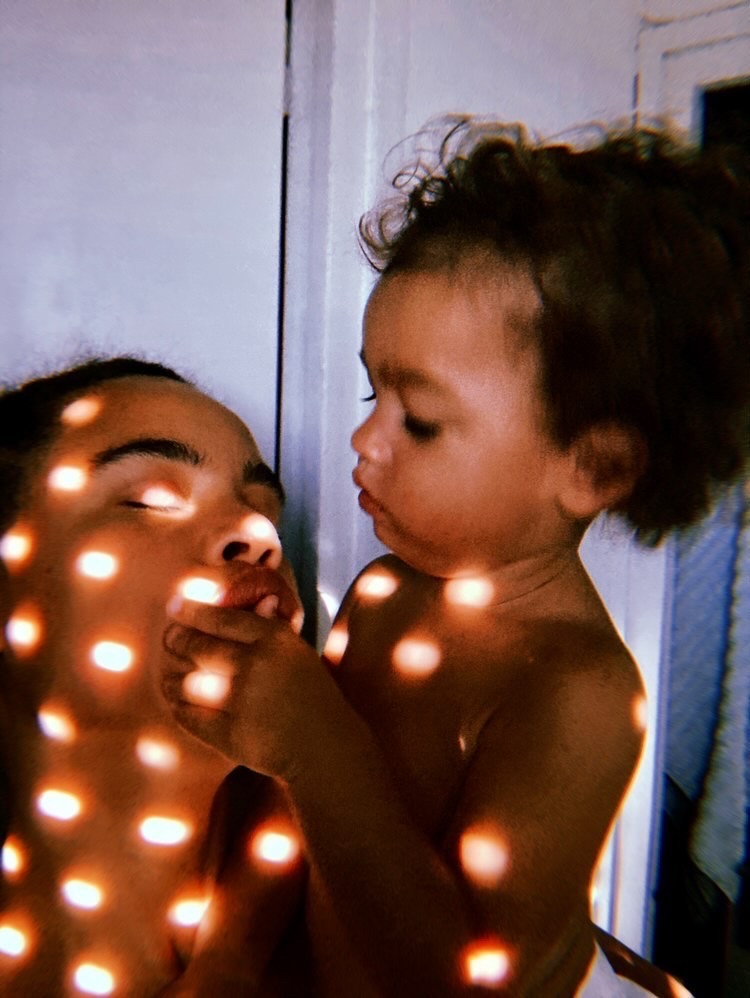
Charlotte Yonga
MPB: Can you tell us about your journey with photography? How has this inspired the project?
KA: I am a part-British, part-Israeli mama and a BAFTA-nominated filmmaker and photographer. With my partner, I co-direct films from our studio in Bristol, UK. Photography is what I love, and where I started out in art school. I love visual pleasure and visual storytelling. I relate to that broad, inclusive, artistic and poetic take on life that anyone can relate to. And I especially love things that are usually unseen, a fresh perspective or take—those points of view that can only be shared by your personal eye and your personal take on life.
I like to say holding a camera is like a superpower. It’s quite powerful to be able to share with others how you look at the world in such an immediate and potent way. Filmmaking and photography are some of the most powerful tools to change people’s minds, to make them feel, think, have empathy and connect to each other. If we want to make the world a better place, to think about the environment, our children and humanity, and being more equal and just, I think connecting is the key.
During the pandemic, I went back to photographing a lot more. We couldn’t work with our crew on commercials and films. I started organically playing at home, documenting the light on the wall, the dappled light on the trees and my tired partner. I captured the light on my kids' faces, the mess, the worry and the beauty. The little things, as well as the big things. It was such a monumental time. But, strangely, all the small things got highlighted—and I think photography was perfect for doing that.

Kana Tanaka
I was then really drawn to other women's work, looking at these details that make up our lives. It’s never really the big things that give us pleasure and beauty. It’s when we look close up at the little mundane things and we highlight them, we can find real, deep and meaningful beauty. And then we can get pleasure, enjoy and take care to really live our lives properly and with intent and with emotion, connecting with each other and with ourselves.
I think the pandemic helped me to highlight my connection to photography. And also my connection to other women who were photographing through the pandemic. We had a lot of conversations via social media, supporting each other making work. And then it all led to the Eye Mama Project.
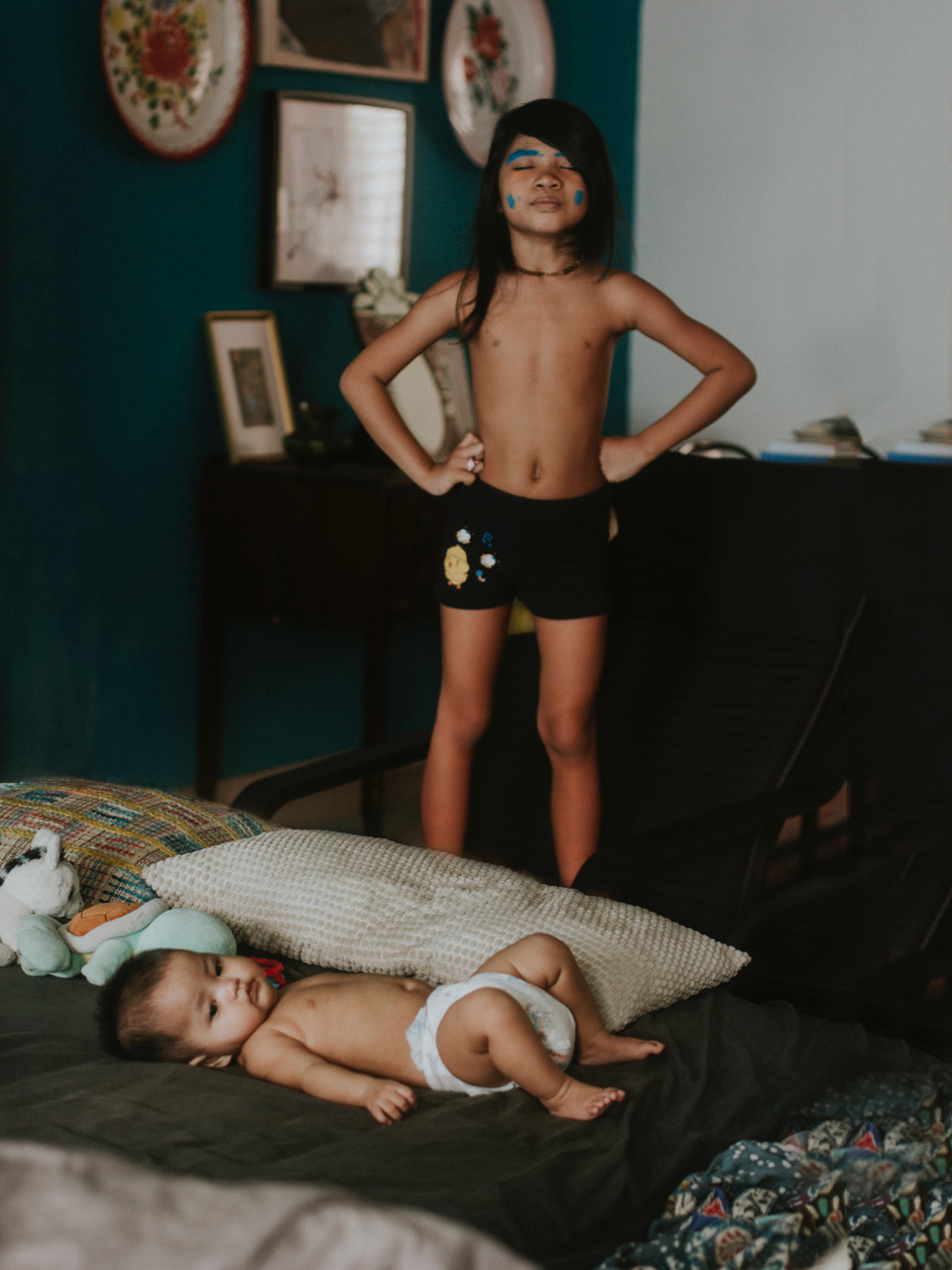
Lisha Zulkepli | Canon EOS 700D | Canon EF 50mm f/1.4 USM | f/2.5 | 1/50 | ISO 100
MPB: How did you select the images for the book?
MPB: The selection for the book was curated via the open call, which was kindly sponsored by MPB. We had four thousand submissions from more than a thousand photographers around the world. These were considered by a jury from the photography industry. These nine women helped us make a long list, then a shortlist and an edit for the book.
It’s a delicate job to curate a body of work that was so overlooked. I feel that it’s a great responsibility, but it’s also an opportunity to highlight so many great women and mama photographers. This body of work belongs to all the eye mamas—it’s theirs as much as mine. With so many stories from many women and artists, it’s the collective voice that has the power.

Tori Ferenc
MPB: What role do you think photography can play in parenthood?
KA: I think photography plays an important role for us all—as humans, not just as mothers. Photography allows us to reflect, to share a point of view at a specific time and at a specific moment in our lives. It highlights the way we think and feel, and shares it with others in a very immediate and powerful way. As humans, connection and storytelling are in our DNA.
Some topics aren’t spoken about often enough. Especially the darker side of motherhood, the struggles. So, photography is a great way to call attention to that. It can help give us visibility and empower the rights of mothers, carers and women.
The great thing about photography is that you don’t need very much to create it. You just need your eye and a camera. With some good light and framing, you can create these incredible bodies of work.
Read more interviews on the MPB Content Hub.
You can sell or trade your camera gear to MPB. Get a free instant quote, get free insured shipping to MPB and get paid within days.